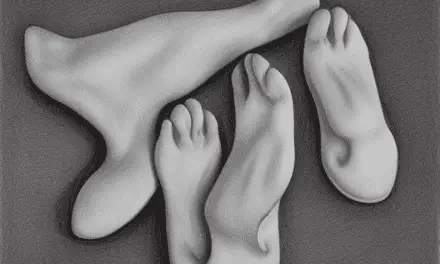Key Takeaways
- The average cost of Havanese puppies ranges from $650 to $1,800, influenced by factors such as breeder reputation and lineage.
- Havanese are small dogs, typically weighing between 7 to 13 pounds and standing 8.5 to 11.5 inches tall at maturity, making them ideal for various living situations.
- These affectionate dogs often live between 14 to 16 years, highlighting the importance of long-term care and commitment from owners.
- Common challenges include separation anxiety, grooming needs, and health concerns, necessitating responsible ownership and regular veterinary care.
- Understanding the temperament of Havanese puppies can help owners prepare for their playful and sociable nature, ensuring a rewarding companionship.
- Finding Havanese puppies for sale can involve exploring local breeders, shelters, and online platforms to secure a healthy and well-bred pet.
Welcome to our comprehensive guide on Havanese puppies, where we delve into everything you need to know about these charming companions. Whether you are a seasoned dog owner or a first-time puppy lover, understanding the cost, size, and lifespan of Havanese puppies is essential for making informed decisions. In this article, we will explore the average price of a Havanese puppy, the factors that influence their cost, and the common challenges associated with owning these delightful dogs. Additionally, we will discuss their growth stages, barking tendencies, and health considerations that affect their longevity. For those looking to bring a Havanese into their home, we will provide insights on finding reputable breeders and affordable options. Join us as we uncover the joys and responsibilities of caring for Havanese puppies, ensuring you are well-equipped to welcome one into your family.
What is the average price of a Havanese puppy?
The average price of a Havanese puppy in 2024 typically ranges from $650 to $1,800. When purchasing from a reputable breeder, it’s crucial to consider factors such as health, temperament, and lineage. Reputable breeders often prioritize these aspects and are usually registered with breed clubs, such as the American Kennel Club (AKC), which provides guidelines for responsible breeding practices.
Understanding Havanese puppies cost
Puppies that come from champion bloodlines or have been bred for specific traits may command higher prices, sometimes exceeding $2,000. It’s advisable to research breeders thoroughly, ensuring they conduct health screenings for common genetic issues in Havanese dogs, such as hip dysplasia and eye disorders. Additionally, prospective owners should factor in the costs of initial vaccinations, microchipping, and spaying or neutering, which can add several hundred dollars to the overall expense. For more detailed insights on responsible pet ownership and health considerations, resources like the AKC‘s Havanese page can be invaluable.
Factors influencing the price of Havanese puppies
Several factors influence the price of Havanese puppies, including the breeder’s reputation, geographical location, and the puppy’s lineage. For instance, Nebraska puppies may vary in price compared to those from Havanese puppies in Florida due to local demand and breeder availability. Additionally, puppies from breeders who are part of recognized clubs often come with a higher price tag, reflecting their commitment to quality and ethical breeding practices. Understanding these factors can help puppy lovers make informed decisions when searching for a Havanese puppy for sale.

Havanese Drawbacks: A Comprehensive Overview
While Havanese puppies are known for their affectionate nature and charming personalities, potential owners should be aware of certain drawbacks associated with this breed. Understanding these challenges can help you prepare for a rewarding experience with your new furry friend.
Common Challenges of Owning Havanese Puppies
- Separation Anxiety: Havanese dogs are known for their strong attachment to their owners, which can lead to separation anxiety. This breed thrives on companionship, and when left alone for extended periods, they may exhibit signs of distress, such as barking, destructive behavior, or excessive drooling. To mitigate these issues, consider gradual desensitization to alone time, engaging in interactive toys, or employing calming techniques. According to the American Kennel Club, consistent training and socialization can help alleviate anxiety in Havanese dogs.
- Grooming Needs: The Havanese has a long, luxurious coat that requires regular grooming to prevent matting and tangling. Owners should commit to brushing their Havanese at least two to three times a week and consider professional grooming every six to eight weeks. Neglecting grooming can lead to skin issues and discomfort for the dog. The ASPCA recommends establishing a grooming routine early in a Havanese’s life to make the process easier.
- Health Concerns: Like many breeds, Havanese are prone to certain health issues, including hip dysplasia, patellar luxation, and eye disorders such as cataracts. Regular veterinary check-ups and a healthy diet can help manage these risks. The Havanese Club of America emphasizes the importance of responsible breeding practices to reduce the incidence of hereditary health problems.
- Training Challenges: While Havanese are intelligent and eager to please, they can also be somewhat stubborn. This may pose challenges during training sessions. Positive reinforcement techniques, such as treats and praise, are recommended to encourage good behavior. The Association of Professional Dog Trainers suggests consistency and patience to effectively train a Havanese.
- Exercise Requirements: Havanese dogs are small but energetic, requiring daily exercise to maintain their physical and mental health. Lack of adequate exercise can lead to behavioral issues, such as excessive barking or hyperactivity. Daily walks, playtime, and mental stimulation through puzzle toys are essential to keep a Havanese happy and well-adjusted.
By understanding these drawbacks, potential Havanese owners can make informed decisions and provide the necessary care to ensure a happy and healthy life for their furry companions.
Assessing the Temperament of Havanese Dogs
The temperament of Havanese puppies is generally friendly, playful, and affectionate. They are known for their sociable nature, making them excellent companions for families and individuals alike. However, it’s essential to recognize that each dog is unique, and their temperament can be influenced by various factors, including genetics, socialization, and training.
- Affectionate Nature: Havanese dogs thrive on human interaction and are known to form strong bonds with their owners. This affectionate demeanor makes them ideal for puppy lovers seeking a loyal companion.
- Playfulness: Havanese puppies are energetic and enjoy playtime, which can be a delightful experience for families with children. Engaging in interactive games helps strengthen the bond between the dog and its owner.
- Intelligence: This breed is intelligent and eager to learn, making them relatively easy to train. However, their stubborn streak can sometimes pose challenges, requiring patience and consistency from their owners.
- Socialization Needs: Early socialization is crucial for Havanese puppies to develop well-rounded temperaments. Exposing them to various environments, people, and other animals can help reduce the likelihood of behavioral issues later in life.
Understanding the temperament of Havanese dogs can help prospective owners prepare for the joys and challenges of welcoming a Havanese puppy into their home.
How big is a Havanese full grown?
The Havanese is a small breed of dog that typically reaches its full size as an adult. According to the American Kennel Club (AKC) Official Havanese Breed Standards, a fully grown Havanese usually stands between 8.5 and 11.5 inches tall at the shoulders. In terms of weight, adult Havanese dogs generally weigh between 7 and 13 pounds. It’s important to note that there is no significant size difference between male and female Havanese, making them a consistent choice for those looking for a compact companion. Their small stature, combined with their friendly and playful nature, makes them ideal for various living situations, including apartments and homes with limited space.
Size and weight of adult Havanese dogs
When considering Havanese puppies, it’s essential to understand their growth trajectory. As they transition from playful puppies to full-grown adults, their size remains relatively consistent. Adult Havanese dogs typically maintain a weight range of 7 to 13 pounds, making them one of the smaller dog breeds. This manageable size allows them to adapt well to different living environments, whether in a cozy apartment or a larger home. Their compact build also makes them a popular choice among puppy lovers who appreciate a dog that is easy to handle and transport.
Growth stages of Havanese puppies
Havanese puppies undergo several growth stages before reaching adulthood. Initially, they are born weighing just a few ounces and rapidly gain weight in the first few weeks. By the time they are around 8 weeks old, they typically weigh between 2 to 4 pounds. As they continue to grow, Havanese puppies will experience significant physical and behavioral changes. By the time they reach 6 months, they are usually around half their adult weight. Understanding these growth stages is crucial for prospective owners, as it helps in planning appropriate nutrition and care for Havanese puppies. For more insights on caring for your Havanese, check out our resources on puppy lovers.
How Big is a Havanese Full Grown?
Understanding the size of Havanese puppies as they grow into adulthood is essential for potential owners. These charming dogs are small in stature, making them ideal for various living situations, including apartments and homes with limited space. Typically, a fully grown Havanese dog weighs between 7 to 13 pounds and stands about 8.5 to 11.5 inches tall at the shoulder. Their compact size, combined with their friendly demeanor, makes them a popular choice among puppy lovers.
Size and Weight of Adult Havanese Dogs
The size of Havanese dogs can vary slightly based on genetics and breeding practices. Most adult Havanese dogs fall within the breed standard set by the American Kennel Club (AKC). It’s important to note that while they are small, Havanese dogs are sturdy and well-proportioned. Their weight typically stabilizes around the age of one year, although some may continue to fill out until they are about 18 months old. For those considering a havanese puppy for sale, understanding their adult size can help in preparing your home and lifestyle for their needs.
Growth Stages of Havanese Puppies
Havanese puppies undergo several growth stages that are crucial for their development. Initially, during the first few weeks, they are entirely dependent on their mother. By the time they reach 8 weeks, they are ready for adoption, and this is when their playful and curious nature begins to emerge. As they grow, proper nutrition and socialization are vital. Havanese puppies should be fed a balanced diet to support their growth, and regular playtime helps them develop their social skills. For those looking for havanese puppies in Florida or other regions, it’s essential to choose a reputable breeder who prioritizes the health and well-being of their puppies.

How Long Will a Havanese Live?
Understanding the lifespan of Havanese puppies is crucial for potential owners. On average, Havanese dogs live between 14 to 16 years, making them a long-term commitment for puppy lovers. Their longevity can be attributed to their small size and generally robust health. However, several factors can influence the lifespan of Havanese dogs, including genetics, diet, and overall care.
Lifespan of Havanese Puppies and Health Considerations
The lifespan of Havanese puppies can be affected by various health considerations. Regular veterinary check-ups are essential to monitor their health and catch any potential issues early. Common health concerns in Havanese include hip dysplasia, eye problems, and heart conditions. By maintaining a healthy diet and ensuring they receive adequate exercise, you can significantly enhance your Havanese’s quality of life and longevity. Additionally, responsible breeding practices play a vital role in the overall health of Havanese puppies, so it’s important to choose a reputable Havanese breeder.
Factors Affecting the Longevity of Havanese Dogs
Several factors can impact the longevity of Havanese dogs. These include:
- Genetics: A family history of health issues can influence your puppy’s lifespan. Always inquire about the health history of the parents when considering a Havanese puppy for sale.
- Diet: Providing a balanced diet rich in nutrients is crucial for maintaining your Havanese’s health. Look for high-quality dog food that meets their specific needs.
- Exercise: Regular physical activity helps keep Havanese dogs fit and can prevent obesity-related health issues.
- Preventive Care: Vaccinations, dental care, and parasite prevention are essential components of a comprehensive health plan for your Havanese.
By understanding these factors, you can help ensure that your Havanese enjoys a long, healthy life. For more information on caring for your Havanese puppy, check out our resources on puppy lovers.
How long will a Havanese live?
The average life expectancy of a Havanese dog is approximately 14.5 years, with a typical lifespan ranging from 13 to 16 years. Research indicates that female Havanese often live about a year longer than their male counterparts. Understanding the lifespan of Havanese puppies is essential for potential owners, as it helps in planning for their long-term care and companionship.
Lifespan of Havanese puppies and health considerations
Several factors can influence the longevity of a Havanese, including genetics, diet, exercise, and overall health care. Regular veterinary check-ups and vaccinations are crucial for early detection of potential health issues. To enhance the lifespan of a Havanese, consider the following tips:
- Balanced Diet: Provide high-quality dog food that meets their nutritional needs. Consult with a veterinarian for dietary recommendations tailored to your Havanese’s age and health status.
- Regular Exercise: Engage your Havanese in daily physical activities such as walks, playtime, and mental stimulation through training exercises. This helps maintain a healthy weight and promotes cardiovascular health.
- Preventive Health Care: Schedule routine veterinary visits for vaccinations, dental care, and screenings for common breed-specific health issues, such as hip dysplasia and eye disorders.
- Grooming: Regular grooming not only keeps their coat healthy but also allows for early detection of skin issues or parasites.
- Stress Management: Create a stable and loving environment to reduce stress, which can negatively impact health.
By following these guidelines and ensuring a loving and supportive environment, Havanese owners can help their pets live longer, healthier lives. For more detailed information on canine health and longevity, refer to resources from the American Kennel Club and veterinary health organizations.
Factors affecting the longevity of Havanese dogs
In addition to the care tips mentioned, several other factors can affect the lifespan of Havanese dogs:
- Genetics: Some Havanese may be predisposed to certain health conditions, so it’s important to choose a reputable Havanese breeder who conducts health screenings.
- Living Environment: A safe and stimulating environment can contribute to a Havanese’s overall well-being. Ensure they have space to play and explore.
- Socialization: Proper socialization from a young age can lead to better behavior and reduced anxiety, which positively impacts their health.
By understanding these factors, you can make informed decisions that will contribute to the health and happiness of your Havanese puppy. For those looking to adopt or purchase a Havanese puppy, consider exploring options for puppy lovers and reputable breeders.
Finding Havanese Puppies for Sale
When searching for Havanese puppies for sale, it’s essential to explore various options to ensure you find a healthy and well-bred puppy. The demand for these adorable puppies Havanese has led to a variety of sources where potential owners can find their new furry friends.
Havanese puppies for sale near me
To locate Havanese puppies for sale near you, consider checking local classified ads, pet stores, and online platforms like Petfinder. These resources often list puppies available for adoption or purchase in your area. Additionally, visiting local shelters or rescue organizations can provide opportunities to adopt a Havanese puppy in need of a home.
Havanese puppies for adoption options
Adopting a Havanese puppy can be a rewarding experience. Many rescue organizations and shelters specialize in Havanese dogs and often have puppies available for adoption. Websites like Adopt a Pet and the Havanese Club of America can help you find reputable rescues and adoption events. Adopting not only gives a puppy a second chance but also helps reduce the number of homeless pets.













